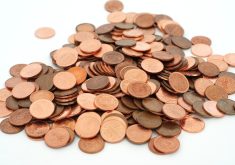A question popped into my head earlier this summer while taking a refreshing fruit break: whatever happened to watermelon seeds?
Besides possibly exposing the trivial nature of many of my thought processes, the question was also based in nostalgia.
Some of my earlier memories involve using a butter knife to carefully remove as many of those seeds as I could find and then spending a great deal of time working my tongue through every bite, always on edge as I searched for seed stragglers.
That’s because somewhere along the way I had become convinced that a watermelon was going to grow in my stomach if I swallowed a seed.
Read Also

Invigor Gold variety viewed as threat to condiment mustard
Invigor Gold, the canola-quality mustard developed by BASF, is on a collision course with Canada’s condiment mustard industry. It’s difficult to see how the two can co-exist.
I kid you not — this boy was afflicted not only with trivial thoughts but also an overactive imagination.
Needless to say, I never had a watermelon grow in my stomach, but the worry was always there in the back of my noggin.
Somewhere along the way I obviously stopped believing that could happen, but I also failed to notice when watermelon seeds disappeared altogether.
Until, that is, the question popped into my head earlier this summer.
A bit of internet sleuthing soon informed me that a certain Professor H. Kihara of Kyoto University began working on a way to produce seedless watermelons in the late 1930s and first described his work in the early 1950s.
He used colchicine to double the number of chromosomes in his watermelons to 22 from 11. This, and some careful planting management, allowed him to produce viable watermelons even though they didn’t produce seeds.
The process was later refined by American scientists, but for a long time it didn’t go anywhere.
Then, in the 1990s, watermelon growers warmed up to the idea, and a fundamental shift began.
Seedless watermelons now make up 92 percent of all watermelon sales.
It’s definitely one less thing for a chronic worrier to have to worry about.















